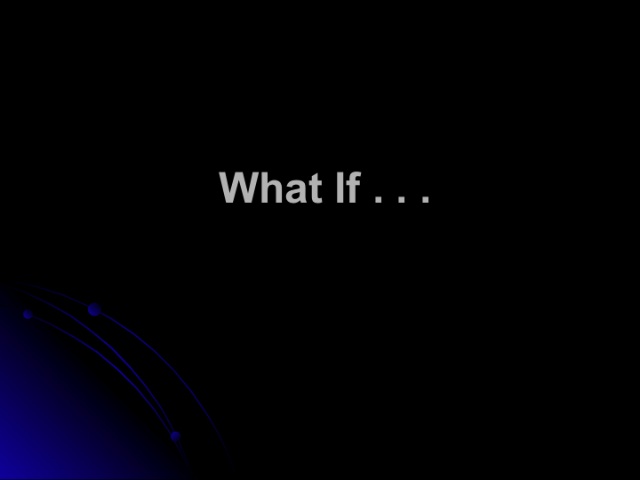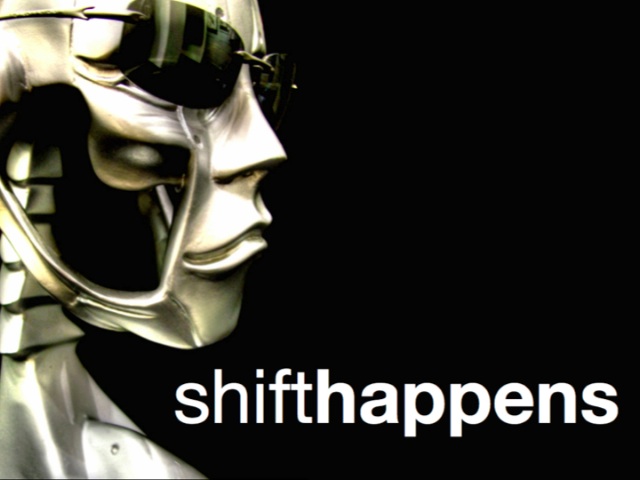What If and Shift Happens
My Headteacher recently handed me a disc and said that I should watch both 'What If...' and 'Shift Happens'. My Head had recently attended a course and two presentations were shown to provoke minds into thinking about the future of education, teaching and learning.
I found them hugely powerful and thought-provoking, and wanted to share them with you here.
What If looks back on statements that people in a variety of educational roles have made over the past few centuries, and some comments made, worryingly, since the turn of the millennium. The key message here, of course, is what if we'd listened to all those people along the way. What are we saying today that could be having an impact on what could happen tomorrow?
Shift Happens offers plenty of provocations through the use of statistics and reflects on where the world and technology has been and is heading.
Both presentations have really opened my eyes to maintaining an open mind about new possibilities and that we simply can't afford to make the same mistakes as we did in the last Century. My Head often says if we carry on doing the same things as we did yesterday, we can expect the same outcomes as of yesterday. If we want to do better for our children, we have to change what we do.
We are educating a different generation and this means embracing new technologies rather than immediately disregarding them. However, it doesn't mean building a curriculum around the technology, but instead use it to enhance and add value to teaching and learning.
For me, probably the most significant aspect of the Shift Happens movie is this statement:
"We are currently preparing our students for jobs that don't yet exist... using technologies that haven't been invented... to solve problems we don't even know are problems yet."
It just shows how open minded we need to be if we are to prepare our children properly for tomorrow's world. Learning knowledge, key facts and figures won't help the children of tomorrow, yet to give them skills to find out information for themselves, contribute their own understanding and challenge one another are much higher order skills.
What this means in reality is give pupils opportunities to be creative, to make decisions, problem solve, debate, discuss, be inventive and above all else, be themselves. If we allow them to develop their own uniqueness, this is what will set them apart from the rest of the world.
What are your thoughts?











Comments
visitor
24 April 2008 - 2:12am
Permalink
Brian
I would be curious to know if anyone has tried to collectively compile a list of things that educators are ready to phase out.
visitor
8 February 2009 - 3:39pm
Permalink
Pete
As a Design & Technology I am often hit with the problems of the new and old. Is there much point in teaching a student how to use various saws when you can go to Lidl, Netto or Aldi and buy a chop saw, band saw or jig saw for the price of good quality hand tools.
Why try to teach them electronics when you cant even get the parts at a price that is less than double the cost of buying something ready made.
I get frustrated by students who can't carry out a simple mathamatical addition without reaching for the calculator, or can quote Feet and Inches but still don't understand what the relationship between cm and mm is (I think imperial measurement was dropped from engineering in the UK in 1969... 3 yrs before I was born).
SO what do we drop from teaching... At the moment I think the quality is being dropped, we are trying to cram more and more in whilst trying to meet those targets, write those records of achivment with the constant fear that we as teachers are failing.
I miss the days (ive only been teaching for 9yrs after working in industry for 8yrs) when a dead line was missed the student failed, finding out that you dont get another chance. They have no fear of failing , they know they will be given another chance, or someone will come along and sort it out for them.
Add new comment